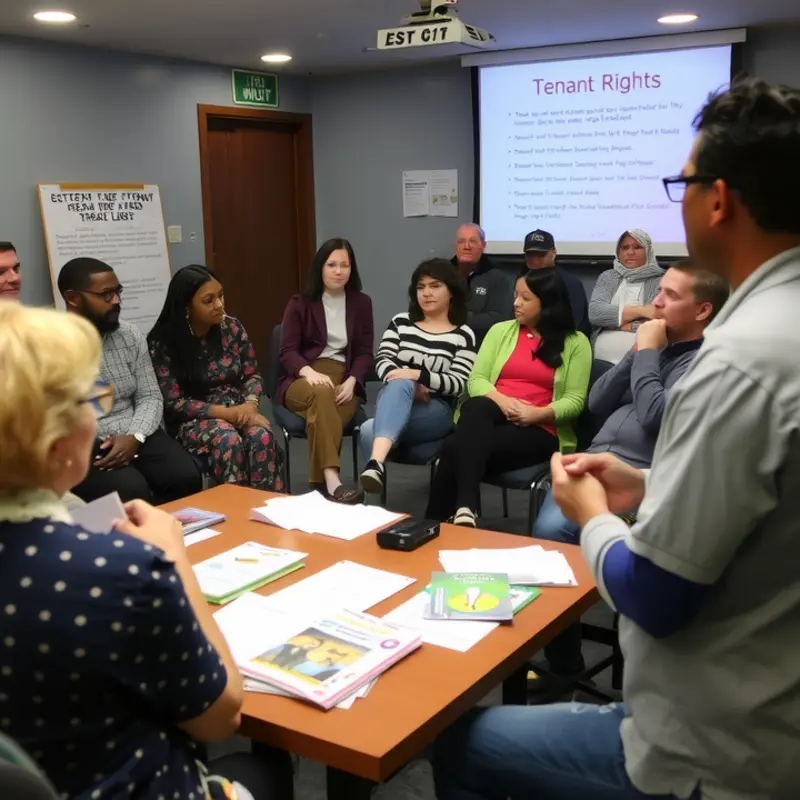Renting a home is an exciting step towards independence, but it’s also filled with questions, potential pitfalls, and opportunities for financial clarity. For young professionals, first-time renters, students, couples, and families, understanding your rights as a renter can greatly enhance your renting experience. Whether you’re looking to navigate lease agreements or are unsure about what to do in case of disputes with landlords, knowing where to turn for help can make all the difference. Fortunately, a range of resources is available to aid you in understanding and asserting your rights. From state-specific guidelines to landlord-tenant organizations, this guide will equip you with the information necessary to advocate for yourself and your loved ones in your renting journey.
Navigating the Lease Landscape
Leases can seem intimidating, with pages of legal jargon and stipulations. Yet, understanding your lease enables you to navigate your renting journey confidently. Let’s break down key elements that first-time renters should focus on.
Rent Terms
Before signing, it’s critical to understand the rent terms. These include the amount, payment methods, and due dates. Seek clarity on what happens if you cannot pay on time. Are there late fees? Can you negotiate a grace period? Understanding these aspects helps avoid surprises.
Security Deposits
A major financial component, the security deposit is often equivalent to one month’s rent. It serves as a safety net for the landlord against potential damages or unpaid rent. Ensure you know the conditions under which the landlord can deduct from this deposit. Familiarize yourself with the laws in your area that dictate maximum deposit amounts and required timelines for its return.
Maintenance Responsibilities
Maintenance responsibilities often create tension between tenants and landlords. A lease should clearly outline who is responsible for upkeep and repairs. While landlords usually handle structural repairs, tenants might manage general cleaning and minor fixes. If the lease is vague, request specific amendments or addenda. This transparency prevents disputes later.
Termination Clauses
Termination clauses explain how you or your landlord can end the lease early. Important to note are requirements for notice periods and any penalties for breaking the lease prematurely. Clarify whether you have a right to terminate for specific reasons, such as job relocation.
Understanding these elements empowers you to assert your rights if a landlord tries to impose unfair terms. Many resources assist in understanding leases, such as online legal aid organizations or housing advocacy groups. Websites offer free lease samples and checklists to guide you in identifying essential terms. Renting in San Francisco discusses unique rental challenges faced in specific areas, providing tailored advice.
If misunderstandings or disputes arise, seek help sooner rather than later. Legal aid organizations can offer guidance and, if necessary, represent your case. Informed engagement with your lease reassures that your rental journey rests on solid ground.
Finding Support and Advocacy Resources

Renting a home should be a straightforward process, but conflicts may arise with your landlord or property management. Understanding your rights and having access to the right resources is crucial in these moments. This chapter will guide you through various advocacy resources available to renters, ensuring you find the support you need.
Local Tenant Unions
Tenant unions are collective organizations that provide a voice for renters in their community. They offer resources and advocacy for individuals dealing with landlord disputes, such as eviction notices or unaddressed maintenance requests. By joining a local tenant union, you gain access to a network of experienced individuals ready to offer advice and support. Unions can assist in negotiation strategies and sometimes provide legal assistance or direct representation.
Tenant unions are also instrumental in fostering community solidarity. Being part of a union gives you the strength to stand against unfair practices. Furthermore, unions frequently conduct workshops and meetings, which can be educational and empowering for first-time renters and young families.
Legal Aid Organizations
Legal aid organizations offer invaluable assistance for renters facing legal challenges. These organizations typically provide free or low-cost legal services to individuals who may not otherwise afford representation. They can help with disputes involving security deposits, lease agreements, or issues of discrimination in housing.
When contacting a legal aid organization, it’s beneficial to present all relevant documentation, including your lease agreement and any written correspondence with your landlord. By doing so, you’re equipping the legal team with the necessary information to best advocate for your rights. Many organizations also provide educational resources that demystify complex legal terminology and processes, making them accessible to everyone.
Government Consumer Protection Agencies
Consumer protection agencies, often operating at the state or federal level, are another crucial resource for renters. These agencies enforce laws that protect tenants, including regulations relating to fair housing and rental agreements. They can investigate unfair practices and levy penalties against landlords who violate tenant rights.
Filing a complaint with a consumer protection agency can seem daunting, but these organizations are equipped to guide you through the process. Providing detailed accounts of your experience and any supporting evidence can significantly strengthen your case.
Finding yourself in a challenging renting situation may feel isolating, but remember that a suite of resources is at your disposal. With tenant unions, legal aid organizations, and consumer protection agencies, you have access to tools and expertise designed to protect your rights. Engaging with these resources ensures you’re not navigating your renting journey alone. This knowledge empowers you, replacing uncertainty with confidence.
For further insights into renting and navigating interactions with landlords, you might find this resource useful: Apartment Viewing Questions.
Final words
Empowering yourself in the renting landscape goes beyond just signing a lease; it’s about being aware of your rights and the resources available to uphold them. As a young professional, student, or a family renting a home, you have the right to live in a space that is safe, secure, and free from unfair practices. By educating yourself on leases and knowing where to find support, you can confidently navigate the complexities of renting. Remember, you are not alone in this journey; numerous resources are designed to help you advocate for yourself and ensure that your renting experience is positive. Equip yourself with knowledge and stand firm, knowing you have the tools to protect your rights.









